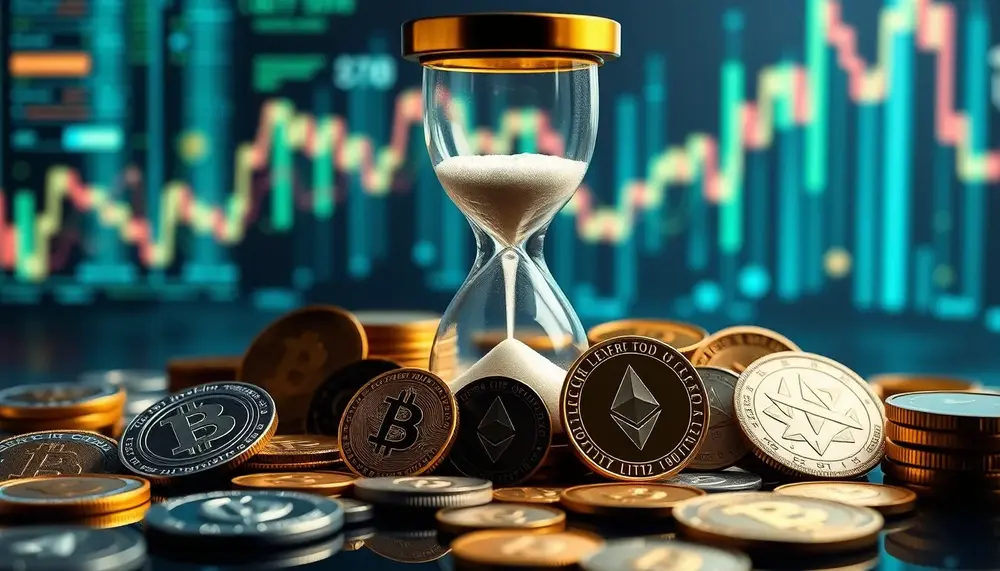Purchasing power
Purchasing power
Understanding Purchasing Power
Purchasing power refers to the value of a currency expressed in terms of the amount of goods or services that one unit of money can buy. Essentially, it is the financial capability to purchase products and services. In the context of finance, cryptocurrencies, growth, mindset, and success, understanding purchasing power is crucial as it directly impacts investment decisions and financial planning.
The Impact of Inflation on Purchasing Power
One of the main factors that affects purchasing power is inflation. When prices increase, the purchasing power of money decreases, meaning that your money can buy less than it could before. High inflation can erode the value of savings and investments, highlighting the importance of strategies designed to protect and potentially increase purchasing power over time.
Purchasing Power in the World of Finance
In the world of finance, purchasing power can determine the real value of your investments. For instance, if you invest in an asset that returns 4% annually, but inflation is at 3%, your real rate of return is effectively only 1%. Financial success requires a focus on maximizing purchasing power, not just nominal returns.
Purchasing Power and Cryptocurrencies
When it comes to cryptocurrencies, purchasing power is a dynamic concept. These digital currencies can experience significant volatility, leading to rapid changes in their purchasing power. However, some people invest in cryptocurrencies like Bitcoin as a potential hedge against inflation, believing that their decentralized nature and limited supply might support their purchasing power over time.
Growth and Purchasing Power
Economic growth tends to increase the purchasing power of a population by creating more jobs and increasing wages. However, for personal financial growth, it's important to invest in assets that have the potential to grow faster than inflation, thus preserving—or ideally increasing—the purchasing power of your capital.
Mindset and Purchasing Power
Your mindset plays a vital role in how you manage and think about your purchasing power. A growth mindset encourages continuous learning, investment in self-education, and the pursuit of opportunities that can lead to both personal and financial success. By adopting a growth mindset, you can make more informed decisions that can positively affect your purchasing power.
Success Through Preserving Purchasing Power
Finally, in the quest for success, it's essential to implement strategies that preserve and enhance your purchasing power. Whether through smart budgeting, investing wisely, or understanding market conditions, the goal is to ensure that your money retains its ability to meet your needs and achieve your financial objectives.
Blog Posts with the term: Purchasing power

Gold plays a vital role in India's economy and culture, serving as both a financial asset and cultural symbol, with its price influenced by global supply-demand dynamics, currency exchange rates, festive seasons, and geopolitical factors. As one of the largest...

The article explores inflation in France, its historical trends from 1987 to 2023, and projections for 2024–2029, highlighting key economic factors like GDP growth, energy prices, and fiscal policies. It emphasizes the importance of understanding inflation's impact on households and...

The article examines inflation in Poland, highlighting its causes such as energy prices and wage growth, alongside economic resilience driven by investments and consumer spending. Projections suggest fluctuating inflation rates through 2026, with fiscal policies playing a crucial role in...

Inflation in Austria is a critical economic indicator influenced by global factors like energy prices and supply chain disruptions, as well as domestic elements such as housing costs and labor market pressures. Understanding its types, causes, and historical trends helps...

Inflation in Vietnam affects purchasing power, investment returns, and economic stability, influencing various asset classes like real estate, bonds, and commodities. Investors must monitor inflation trends and policies to mitigate risks while leveraging opportunities in this dynamic market....

Inflation is the gradual rise in prices, reducing money's purchasing power, measured by tools like CPI; it impacts essentials such as housing, food, and energy. Historical trends show inflation varies across sectors and periods, influencing household budgets and financial priorities...

The Reserve Bank of India (RBI) plays a crucial role in promoting financial literacy through multilingual resources, targeted initiatives like Financial Literacy Week, and year-round efforts to empower diverse demographics with knowledge on digital banking, fraud prevention, and responsible financial...

The article discusses the key factors influencing future market growth, emphasizing the importance of understanding economic trends, interest rates, and investment strategies for navigating financial markets. It highlights methodologies for market projections and suggests diversification as a strategy to manage...

The article highlights the importance of life planning for financial stability, emphasizing tools like a life planning calculator to simplify complex decisions and align goals. It explains how such calculators help estimate retirement needs, track savings goals, plan withdrawals, and...

Romania's financial sector has evolved significantly, marked by milestones like the Bucharest Stock Exchange's re-establishment and EU integration, fostering growth and innovation. Economic trends such as GDP expansion, digital transformation, and sustainable development further shape opportunities for investors in this...

An inflation bonus is a financial tool aimed at mitigating the effects of rising inflation by stabilizing purchasing power, promoting social equity, and supporting economic stability. It benefits employees, employers, governments, and investors through targeted relief measures like cash payments...

Financial intelligence is essential for making informed decisions, achieving stability, and unlocking opportunities through budgeting, education, and effective debt management strategies....

Financial literacy is essential for students, fostering critical life skills like budgeting and saving; videos make learning engaging, accessible, and relatable. Early financial education builds confidence, equality, and preparedness for real-world challenges through dynamic tools tailored to diverse learning styles....

Bitcoin Halving is a significant event occurring approximately every four years, reducing miners' rewards by half to control Bitcoin's supply and inflation, often influencing market dynamics and price due to increased scarcity....

Achieving financial freedom by design involves creating a clear, personalized plan aligned with your goals and values, transitioning from reactive to intentional financial planning. By following steps like discovery, vision creation, action implementation, and regular progress monitoring, you can build...
